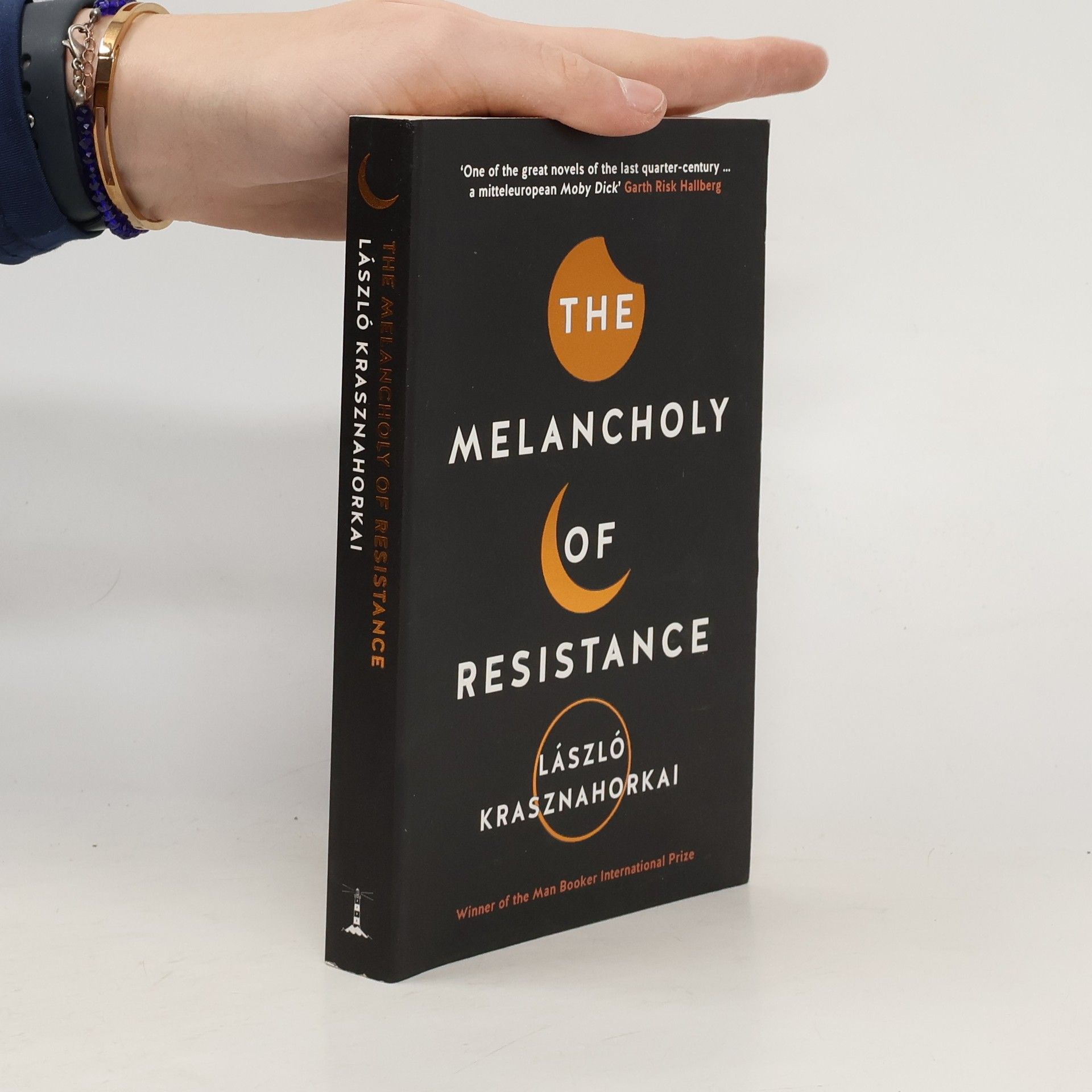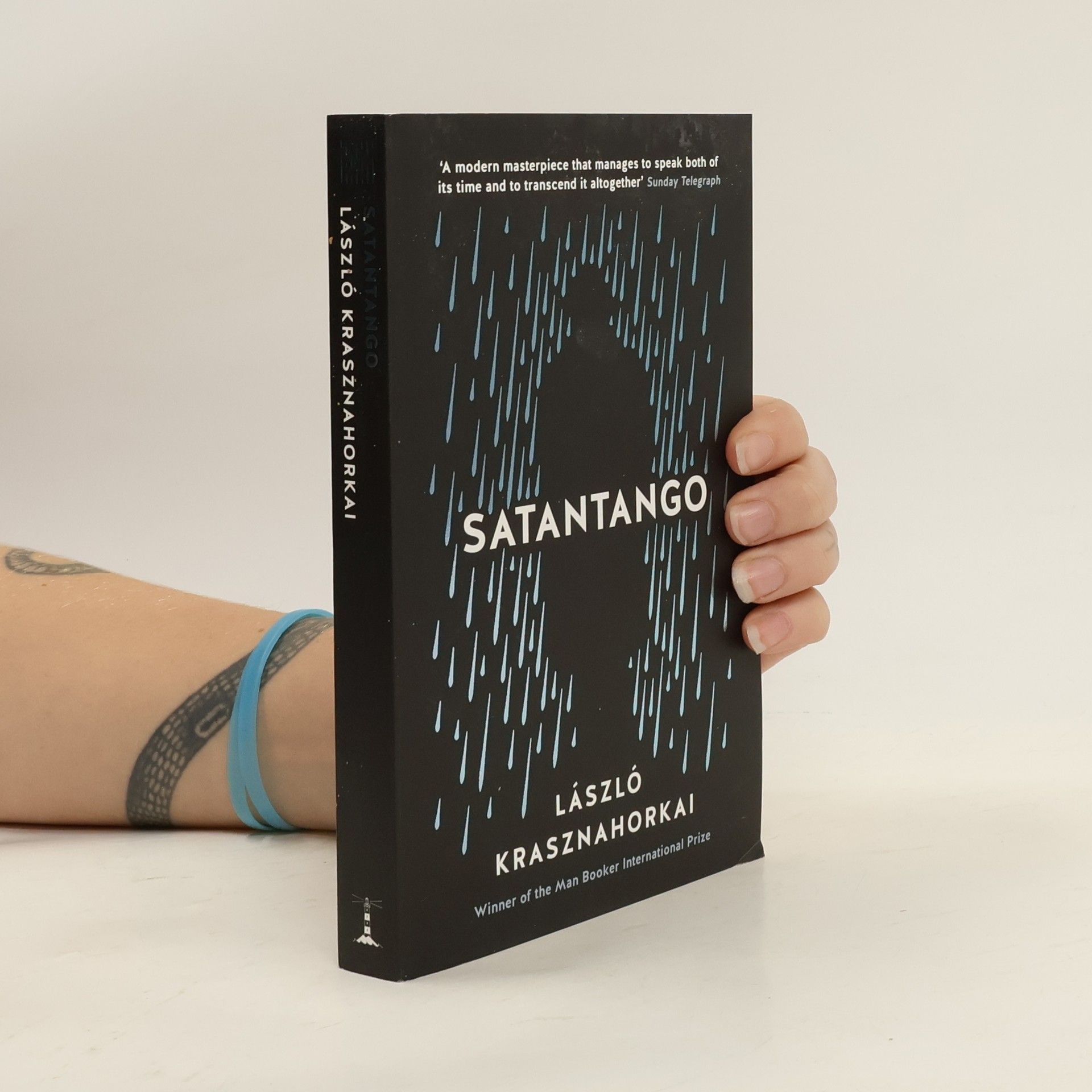Herscht 07769
Florian Herschts Bach-Roman | Nobelpreis für Literatur 2025
László Krasznahorkai is a Hungarian novelist celebrated for his profoundly challenging and demanding literary works, often categorized as postmodern. His narratives delve into dystopian landscapes and themes of bleak melancholy, marked by a distinctive, hypnotic style. His significant collaborations with filmmaker Béla Tarr have amplified his international recognition. Krasznahorkai's writing is characterized by its intense exploration of existence and the human condition, delivered with exceptional urgency and literary power.







Florian Herschts Bach-Roman | Nobelpreis für Literatur 2025
Drei Erzählungen von dem Meister der literarischen Halluzination László Krasznahorkai - mit Zeichnungen von Max Neumann und einem Schlagzeugsolo von Miklós Szilveszter New York ist ein vertikaler Albtraum. Doch Manhattan ruht auf einem gewaltigen Felsen aus Granit, einer Horizontale, die alles trägt und verbindet. Die Menschen vergessen das: Hier, in der 26th Street, lebt ein Bibliothekar, der sich auf den Spuren Herman Melvilles verliert. Aber betritt er den Wahn des Anderen oder schließt ihn sein eigener immer dichter ein? In einer anderen Geschichte endet eine labyrinthische Verfolgungsjagd mit Zug und Fähre quer durch Europa auf einer abgelegenen Insel. Doch hier lauert keine Rettung, sondern eine Falle. Die Erzählungen von László Krasznahorkai in »Im Wahn der Anderen« entfalten eine hypnotische Wirkung. Oft entwickelt sich der atemlose Sog im Dialog mit Zeichnungen des Malers Max Neumann: Text und Bilder greifen ineinander und entdecken eine Dimension der Realität, die weiter greift als Tag und Nacht, Schlaf und Traum.
A joyful ode-in a single soaring, crazy sentence-to the interconnectedness of great (and mad) minds
The National Book Award winner's breathtaking new novel about neo-Nazis, particle physics, and Johann Sebastian Bach
Chasing Homer incarnates a classic nightmare: the flight for survival at an ever-escalating velocity, sped on not only by Krasznahorkai's signature breathlessness, but also by a unique musical score and intense illustrations
"Set in contemporary times, Baron Wenckheim's Homecoming tells the story of a Prince Myshkin-like figure, Baron Bela Wenckheim, who decides to return at the end of his life to the provincial Hungarian town of his birth. Having escaped from his many casino debts in Buenos Aires, where he was living in exile, he wishes to be reunited with his high school sweetheart Marika. What follows is an endless storm of gossip, con men, and local politicians, vividly evoking the small town's alternately drab and absurd existence. All along, the Professor--a world-famous natural scientist who studies mosses and inhabits a bizarre Zen-like shack in a desolate area outside of town--offers long rants and disquisitions on his own attempts to immunize himself from thought. Spectacular actions are staged, death and the abyss loom, until finally doom is brought down on the unsuspecting residents of the town"-- Provided by publisher
"In this literary diary, Krasznahorkai chronicles his attempts to fathom the life of Herman Melville, which is also the source of inspiration for his forthcoming novella Spadework for a Palace. Retracing Melville's steps, Krasznahorkai becomes engrossed in a web of chance encounters and coincidences that stretch from Manhattan to Nantucket, to London and to Berlin. Over the course of his wanderings, Krasznahorkai finds himself increasingly alienated from his present-day surroundings, drawn instead to the company of ghosts: the novelist Malcolm Lowry when he was down-and-out, the visionary architect Lebbeus Woods and of course - Melville himself. Ornan Rotem's photographic essay follows Krasznahorkai on his forays, both in space and time, creating a subtle portrait of a creative mind at work and the places he encounters."--Publisher
In The Last Wolf, a philosophy professor is mistakenly hired to write the true tale of the last wolf of Extremadura, a barren stretch of Spain. His miserable experience is narrated in a single, rolling sentence to a patently bored bartender in a dreary Berlin bar. In Herman, a master trapper is asked to clear a forest's last 'noxious beasts.' Herman begins with great zeal, although in time he switches sides, deciding to track entirely new game... In Herman II, the same events are related from the perspective of strange visitors to the region, a group of hyper-sexualised aristocrats who interrupt their orgies to pitch in with the manhunt of poor Herman...These intense, perfect novellas, full of Krasznhorkai's signature sense of foreboding and dark irony, are perfect examples of his craft.
"Destruction and Sorrow beneath the Heavens is both a travel memoir and the chronicle of a distinct intellectual shift as one of the most captivating contemporary writers and thinkers begins to engage with the cultures of Asia and the legacies of its interactions with Europe in a newly globalized society. Rendered in English by award-winning translator Ottilie Mulzet, Destruction and Sorrow beneath the Heavens is an important work, marking the emergence of Krasznahorkai as a truly global novelist"--Amazon.com
One of the great inventors of new forms in contemporary literature ... there is nothing else like it in contemporary literature Adam Thirwell New York Review of Books